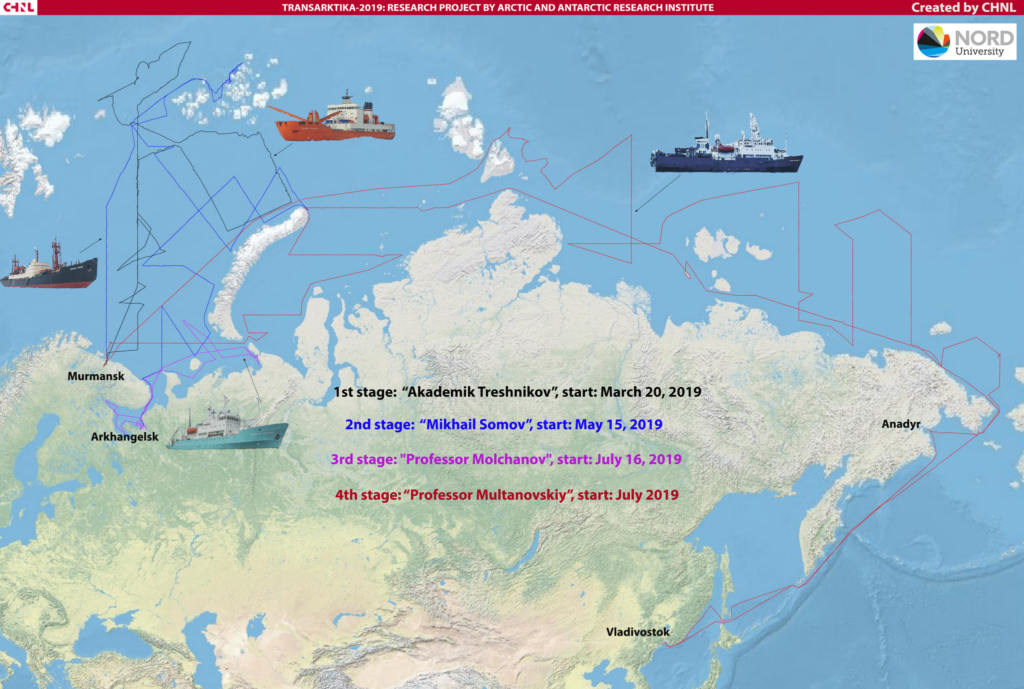TRANSARCTIC – 2019
The changes in ice conditions in the high-latitude Arctic have made the work of scientists on drifting ice very difficult. In 2013 the work of the last full-scale drifting research station “North Pole-40” was stopped.
The project was intended to resume comprehensive scientific research in the Arctic basin and test new technologies for operating ice-resistant platform «North Pole», that is under construction at the request of Federal Service of Russia on Hydrometeorology and Monitoring of the Environment.
The expedition consisted of four stages. Interdisciplinary studies of changes in the natural environment of the Arctic Ocean were carried out at each stage. Unique data will allow scientists to assess the formation patterns of the Arctic environment state and its likely changes in present global warming. These studies will contribute to the improvement of weather and climate forecast models that are necessary to ensure safe navigation in the Northern Sea Route.
The 1st stage of the expedition
Start: March 20, 2019
Vessel: “Akademik Treshnikov”
Scientific program: the study of the ocean-ice-atmosphere system and near space using modern technical means, buoy systems, large-scale oceanographic surveys from helicopters, observations from ice and a ship, and satellite monitoring.
During the first stage, the operation technologies and staff assistance of the ice-resistant self-propelled platform «North Pole» were tested, its design and construction since 2018 has been carried out by “Admiralty Shipyards” by order of Russian Federal Service on Hydrometeorology and Monitoring of the Environment. The data obtained will become the fundamental basis for the Russian national Arctic spatially distributed scientific observatory.
The 2nd stage of the expedition
Start: May 15, 2019
Vessel: “Mikhail Somov”
Scientific program: state monitoring of the environment in the Barents Sea.
Hydrometeorological observations, monitoring of the ice situation and wildlife were carried out along the vessel’s route of movement. The main goal of the work was to assess the state of water areas, marine and coastal ecosystems of the Arctic seas in connection with global climate change and to obtain timely information on the state of marine ecosystems.
The 3rd stage of the expedition
Start: July 16, 2019
Vessel: “Professor Molchanov”
Scientific program: conducting comprehensive research work in the White and Barents Seas as part of an educational project for students of Russian universities.
The main goal of the work was the popularization of polar research among young people. During the implementation of complex expeditionary studies of the ecosystems of the Arctic seas and coasts, students of Russian universities gain practical skills in the high-latitude Arctic.
This stage was organized, inter alia, to prepare researchers for work on the ice-resistant platform “North Pole” and at institutions.
The 4th stage of the expedition
Start: July 2019
Vessel: “Professor Multanovsky”
Scientific program: state environmental monitoring in the waters from the Chukchi Sea to the Barents Sea.
Scientists have carried out work to restore the regular system of state integrated monitoring of the condition and environmental pollution of the bordering Arctic seas of Russia.
Source: http://www.aari.ru/

